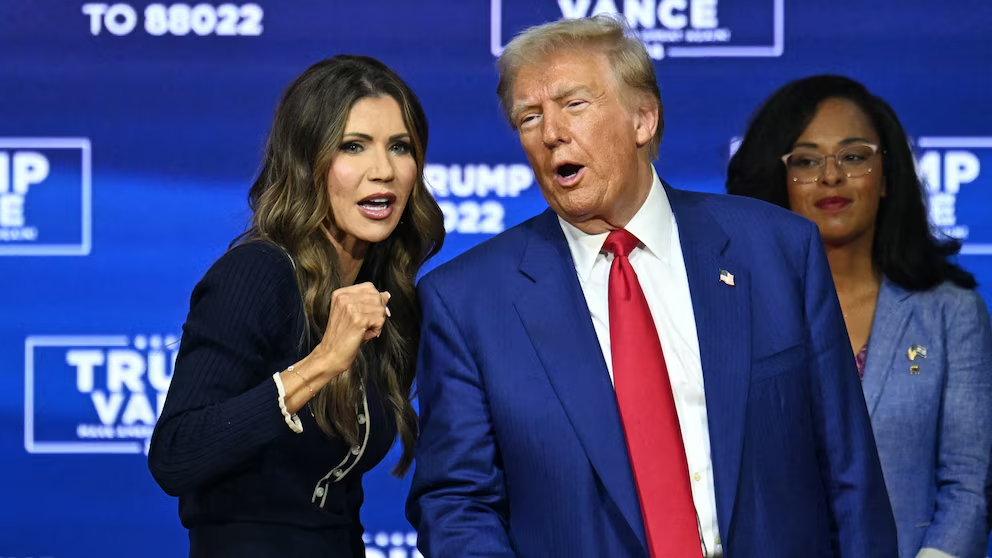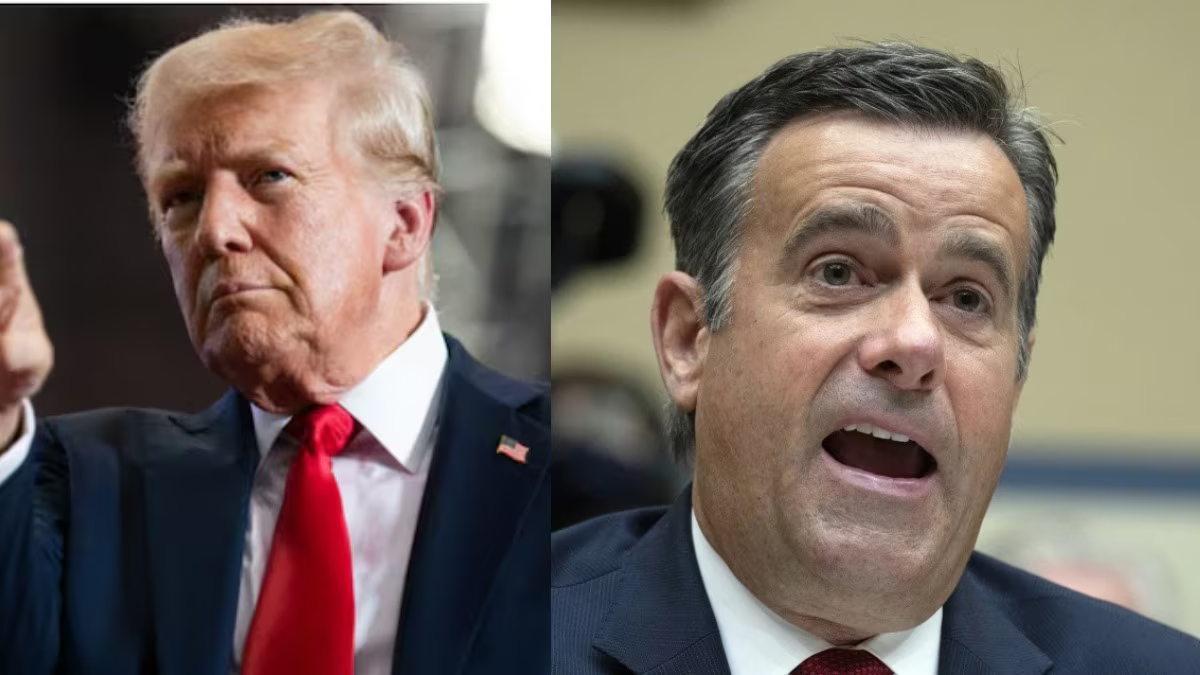Department of Research, Strategic Studies and International Relations 20-11-2024

US President-elect Donald Trump is filling key posts in his second administration, and it’s shaping up much differently than his first. He’s prioritizing loyalists for top jobs.
Trump was bruised and hampered by internal squabbles during his initial term in office. Now he appears focused on remaking the federal government in his own image. Some of his choices could face difficult confirmation battles even with Republicans in control of the US Senate.
Here’s a look at whom he has selected so far.
Cabinet nominees:
SECRETARY OF STATE: Marco Rubio

Trump named Florida Sen. Marco Rubio to be secretary of state, making the critic-turned-ally his choice for top diplomat.
Rubio, 53, is a noted hawk on China, Cuba and Iran, and was a finalist to be Trump’s running mate on the Republican ticket last summer. Rubio is the vice chairman of the Senate Intelligence Committee and a member of the Senate Foreign Relations Committee.
The announcement punctuates the hard pivot Rubio has made with Trump, whom the senator once called a “con man” during his unsuccessful campaign for the 2016 Republican presidential nomination.
Their relationship improved dramatically while Trump was in the White House. And as Trump campaigned for the presidency a third time, Rubio cheered his proposals. For instance, Rubio, who more than a decade ago helped craft immigration legislation that included a path to citizenship for people in the US illegally, now supports Trump’s plan to use the US military for mass deportations.
ATTORNEY GENERAL: Matt Gaetz

Trump said Wednesday he will nominate Florida Rep. Matt Gaetz to serve as his attorney general, naming a loyalist in the role of the nation’s top prosecutor.
In selecting Gaetz, 42, Trump passed over more established lawyers whose names had been mentioned as being contenders for the job.
“Matt will end Weaponized Government, protect our Borders, dismantle Criminal Organizations and Restore Americans’ badly-shattered Faith and Confidence in the Justice Department,” Trump said in a statement.
Gaetz resigned from Congress after Trump announced him. The House Ethics Committee has been investigating an allegation that Gaetz paid for sex with a 17-year-old, though that probe effectively ended when he resigned. Gaetz has denied any wrongdoing.
DIRECTOR OF NATIONAL INTELLIGENCE: Tulsi Gabbard

Former Hawaii Rep. Tulsi Gabbard has been tapped by Trump to be director of national intelligence, another example of Trump prizing loyalty over experience.
Gabbard, 43, was a Democratic House member who unsuccessfully sought the party’s 2020 presidential nomination before leaving the party in 2022. She endorsed Trump in August and campaigned often with him this fall, and she’s been accused of echoing Russian propaganda.
Gabbard, who has served in the Army National Guard for more than two decades, deploying to Iraq and Kuwait, would come to the role as an outsider compared to her predecessor. The current director, Avril Haines, was confirmed by the Senate in 2021 following several years in a number of top national security and intelligence positions.
DEFENSE SECRETARY: Pete Hegseth

Hegseth, 44, was a co-host of Fox News Channel’s “Fox and Friends Weekend” and has been a contributor with the network since 2014. He developed a friendship with Trump, who made regular appearances on the show.
Hegseth served in the Army National Guard from 2002 to 2021, deploying to Iraq in 2005 and Afghanistan in 2011. He has two Bronze Stars. However, Hegseth lacks senior military and national security experience. If confirmed by the Senate, he would inherit the top job during a series of global crises — ranging from Russia’s war in Ukraine and the ongoing attacks in the Middle East by Iranian proxies to the push for a cease-fire between Israel, Hamas and Hezbollah and escalating worries about the growing alliance between Russia and North Korea.
Hegseth is also the author of “The War on Warriors: Behind the Betrayal of the Men Who Keep Us Free,” published earlier this year.
COMMERCE SECRETARY: Howard Lutnick

Lutnick heads up the brokerage and investment bank Cantor Fitzgerald and is a cryptocurrency enthusiast. He is co-chair of Trump’s transition operation, charged along with Linda McMahon, a former wrestling executive who previously led Trump’s Small Business Administration, with helping the president-elect build a Cabinet for his second administration.
As commerce secretary, Lutnick would play a key role in carrying out Trump’s plans to raise and enforce tariffs. He would oversee a sprawling Cabinet department whose oversight ranges from funding new computer chip factories and imposing trade restrictions to releasing economic data and monitoring the weather.
HOMELAND SECURITY SECRETARY: Kristi Noem

Noem is a well-known conservative who used her two terms as South Dakota’s governor to vault to a prominent position in Republican politics.
During the Covid-19 pandemic, Noem did not order restrictions that other states had issued and instead declared her state “open for business.” Trump held a fireworks rally at Mount Rushmore in July 2020 in one of the first large gatherings of the pandemic.
More recently, Noem faced sharp criticism for telling a story in her memoir about shooting and killing her dog.
She is set to lead a department crucial to the president-elect’s hardline immigration agenda as well as other missions. Homeland Security oversees natural disaster response, the US Secret Service and Transportation Security Administration agents who work at airports.
CIA DIRECTOR: John Ratcliffe

Ratcliffe, a former US House member from Texas, was director of national intelligence during the final year and a half of Trump’s first term, leading the US government’s spy agencies during the coronavirus pandemic.
If confirmed, Ratcliffe will have held the highest intelligence positions in the US
HEALTH AND HUMAN SERVICES SECRETARY: Robert F. Kennedy Jr.

Kennedy ran for president as a Democrat, then as an independent, and then endorsed Trump. He’s the son of Democratic icon Robert Kennedy, who was assassinated during his own presidential campaign.
The nomination alarmed people who are concerned about his record of spreading unfounded fears about vaccines. For example, he has long advanced the debunked idea that vaccines cause autism.
TRANSPORTATION SECRETARY: Sean Duffy

Duffy is a former House member from Wisconsin who was one of Trump’s most visible defenders on cable news. Duffy served in the House for nearly nine years, sitting on the Financial Services Committee and chairing the subcommittee on insurance and housing. He left Congress in 2019 for a TV career and has been the host of “The Bottom Line” on Fox Business.
Before entering politics, Duffy was a reality TV star on MTV, where he met his wife, “Fox and Friends Weekend” co-host Rachel Campos-Duffy. They have nine children.
VETERANS AFFAIRS SECRETARY: Doug Collins

Collins is a former Republican congressman from Georgia who gained recognition for defending Trump during his first impeachment trial, which centered on US assistance for Ukraine. Trump was impeached for urging Ukraine to investigate Joe Biden in 2019 during the Democratic presidential nomination, but he was acquitted by the Senate.
Collins has also served in the armed forces himself and is currently a chaplain in the United States Air Force Reserve Command.
INTERIOR SECRETARY: Doug Burgum

The governor of North Dakota, once little-known outside his state, is a former Republican presidential primary contender who endorsed Trump and then spent months traveling to drum up support for Trump after dropping out of the race.
Burgum was a serious contender to be Trump’s vice presidential choice this summer. The two-term governor was seen as a possible pick because of his executive experience and business savvy. Burgum also has close ties to deep-pocketed energy industry CEOs.
Trump initially announced his choice of Burgum while addressing a gala at his Mar-a-Lago club in Florida. His formal announcement the following day said he wanted Burgum to be Interior secretary and chairman of a new National Energy Council. Burgun will also have a seat on the National Security Council, which would be a first for the Interior secretary.
ENERGY SECRETARY: Chris Wright

A campaign donor and CEO of Denver-based Liberty Energy, Write is a vocal advocate of oil and gas development, including fracking — a key pillar of Trump’s quest to achieve US “energy dominance” in the global market.
Wright also has been one of the industry’s loudest voices against efforts to fight climate change. He said the climate movement around the world is “collapsing under its own weight.” The Energy Department is responsible for advancing energy, environmental and nuclear security of the United States.
Wright also won support from influential conservatives, including oil and gas tycoon Harold Hamm. Hamm, executive chairman of Oklahoma-based Continental Resources, a major shale oil company, is a longtime Trump supporter and adviser who played a key role on energy issues in Trump’s first term.
EDUCATION SECRETARY: Linda McMahon

McMahon, a billionaire professional wrestling mogul, would be making a return appearance in a second Trump administration. She led the Small Business Administration from 2017 to 2019 during Trump’s initial term and twice ran unsuccessfully as a Republican for the US Senate in Connecticut. She served on the Connecticut Board of Education for a year starting in 2009 and has spent years on the board of trustees for Sacred Heart University in Connecticut. She has expressed support for charter schools and school choice.
ENVIRONMENTAL PROTECTION AGENCY ADMINISTRATOR: Lee Zeldin

Zeldin does not appear to have any experience in environmental issues, but is a longtime supporter of the former president. The 44-year-old former US House member from New York wrote on X, “We will restore US energy dominance, revitalize our auto industry to bring back American jobs, and make the US the global leader of AI.”
“We will do so while protecting access to clean air and water,” he added.
During his campaign, Trump often attacked the Biden administration’s promotion of electric vehicles, and incorrectly referred to a tax credit for EV purchases as a government mandate. Trump also often told his audiences during the campaign that his administration would “drill, baby, drill,” referring to his support for expanded petroleum exploration.

